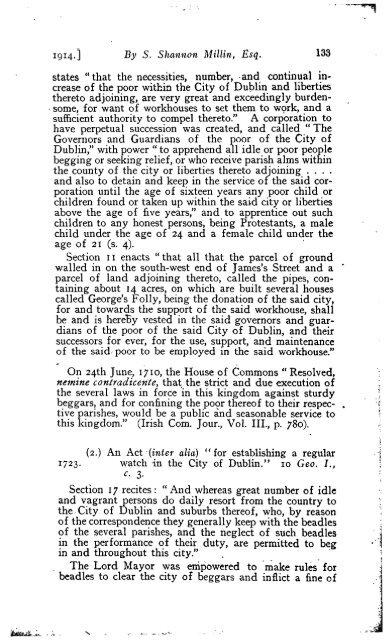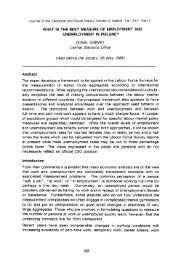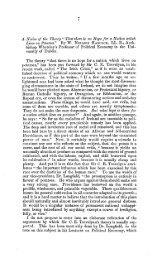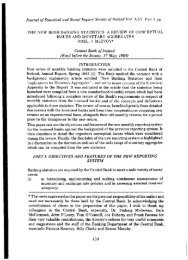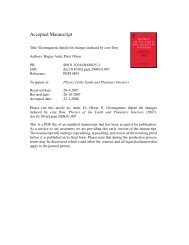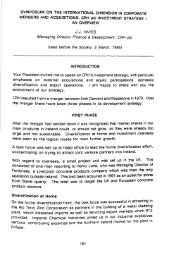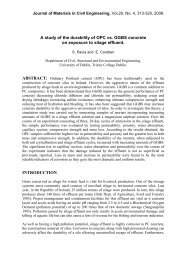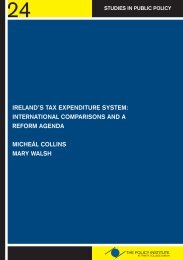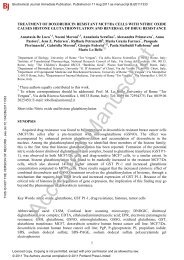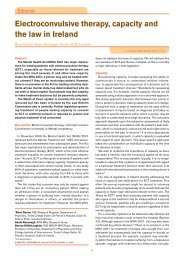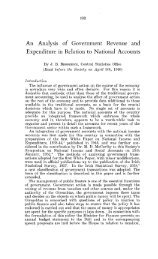Read Friday, 23rd January, 1914. - TARA - Trinity College Dublin
Read Friday, 23rd January, 1914. - TARA - Trinity College Dublin
Read Friday, 23rd January, 1914. - TARA - Trinity College Dublin
You also want an ePaper? Increase the reach of your titles
YUMPU automatically turns print PDFs into web optimized ePapers that Google loves.
<strong>1914.</strong>] By S. Shannon Millin, Esq. 133<br />
states "that the necessities, number, and continual increase<br />
of the poor within the City of <strong>Dublin</strong> and liberties<br />
thereto adjoining, are very great and exceedingly burdensome,<br />
for want of workhouses to set them to work, and a<br />
sufficient authority to compel thereto." A corporation to<br />
have perpetual succession was created, and called " The<br />
Governors and Guardians of the poor of the City of<br />
<strong>Dublin</strong>," with power " to apprehend all idle or poor people<br />
begging or seeking relief, or who receive parish alms within<br />
the county of the city or liberties thereto adjoining ....<br />
and also to detain and keep in the service of the said corporation<br />
until the age of sixteen years any poor child or<br />
children found or taken up within the said city or liberties<br />
above the age of five years," and to apprentice out such<br />
children to any honest persons, being Protestants, a male<br />
child under the age of 24 and a female child under the<br />
age of 21 (s. 4).<br />
Section 11 enacts "that all that the parcel of ground<br />
walled in on the south-west end of James's Street and a<br />
parcel of land adjoining thereto, called the pipes, containing<br />
about 14 acres, on which are built several houses<br />
called George's Folly, being the donation of the said city,<br />
for and towards the support of the said workhouse, shall<br />
be and is hereBy vested in the said governors and guardians<br />
of the poor of the said City of <strong>Dublin</strong>, and their<br />
successors for ever, for the use, support, and maintenance<br />
of the said poor to be employed in the said workhouse."<br />
On 24th June, 1710, the House of Commons " Resolved,<br />
nemine contradicente, that the strict and due execution of<br />
the several laws in force in this kingdom against sturdy<br />
beggars, and for confining the poor thereof to their respective<br />
parishes, would be a public and seasonable service to<br />
this kingdom." (Irish Com. Jour., Vol. III., p. 780).<br />
(2.) An Act (inter alia) "for establishing a regular<br />
1723. watch in the City of <strong>Dublin</strong>." 10 Geo. I.,<br />
Section 17 recites: " And whereas great number of idle<br />
and vagrant persons do daily resort from the country to<br />
the City of <strong>Dublin</strong> and suburbs thereof, who, by reason<br />
of the correspondence they generally keep with the beadles<br />
of the several parishes, and the neglect of such beadles<br />
in the performance of their duty, are permitted to beg<br />
in and throughout this city."<br />
The Lord Mayor was empowered to make rules for<br />
beadles to clear the city of beggars and inflict a fine of


